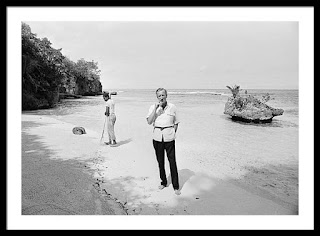“Practice makes perfect.”
How many times have you heard your parents say that?
For me, that saying was right up there with, “We’ll do that (exciting thing) one day.”
And “No, we can’t wrap up your uneaten pork chop and send it to Africa to feed the hungry.”
Okay, yeah, I have parental issues.
~~~
What I’m trying to say here is that the first adage above is, sadly, right, and right with just about any endeavor you take on, especially when you write and then have to delete what you’ve written because those words were wrong… for the thesis, short story or book.
I get it.
You say, “But B.J., I fought like heck to get those words down on paper. It took me days, weeks, months to get up the courage to hit that keyboard with all I had, and now some prof or editor or best friend (the latter may be stripped of their ‘best’ classification) says that passage just doesn’t work.”
I know, dear weaver of words… I know.
You’ve missed the boat.
Your porch light is on but nobody’s home.
You’re a literary Christmas light string with dead bulbs.
And, for extras, you’re ugly and your mother dresses you funny.
(Oops, sorry, about that last bit… I have school yard issues, too…)
Here’s the deal, the reality check, the drinking of the plain truth java: If it takes a million words to get good at wordsmithing, it takes two million deleted words to get to that million.
I hear your groans and gags. Your disdainful spittle is hitting my face (need a washcloth, brb).
Yep. I know. You hate me now. Line up. Bring snacks. You’re not alone.
But there’s Good News!
The more you delete, the better you get at recognizing good sentences when you do write them, and over time, the keep pile grows as the delete pile shrinks.
The best way to go through these literary Growing Pains: don’t fall in love with those words you plunk down on the page.
Think of writing this way >>> if I weaved words once, I can do it again!
Do knitters when they drop a stitch, give up on that scarf?
Do welders when the solder bead doesn’t take, abandon that plumbing job?
Nope and nope. You know that.
Knitters keep on knitting. Welders keep on welding. And writers need to keep on writing.
And the more practice you get, the better you get. (See how I knitted and welded that first sentence way up there, all the way to here. Aren’t I a smart cookie. (It only took me forever.))
Those fought-for words aren’t divine. You only think they are because of the effort it took to weave them. You don’t need to become attached. It just feels like you should because that first attempt was so hard, took so long, and drained you mentally and emotionally.
But there will come a day in the not-too-distant future where the difficulty will ebb. It happens in an almost imperceptible way. The correct sentence structure will become more exacting, and the true meaning will shine through. But it will happen only through a ton of deletion. And the faster you delete those icky words, the faster you rewrite, and the faster you begin to keep a few.
When I write, I delete or hit the back button without a thought. I know that first sentence attempt wasn’t right, so I delete and hit the keys again, and I’ll have a new take before my brain realizes I deleted the old. No muss, no fuss, no divorce papers.
Confidence: Knowing you can hit those keys again and again until you get it right. Knowing there's no word limit on your keyboard or inside your head. Realizing that plunking out bad sentences AIDS me in creating good ones. I wonder sometimes if I’m more of a wheat farmer than a writer for all the chaff I have to discard in favor of finding and keeping the wheat.
HOMEWORK: Drop the notion that if it took you blood, sweat and tears to write that first sentence, it’ll take the same to write another. It won’t. You NEED practice. For your next project, DELETE those icky words WITHOUT A THOUGHT. Do it. Hit that delete key. Punch that back button. The next keys you hit after that WILL BE BETTER. I promise you.
Look at it this way: Save the word marriage for later. Right now, you’re word dating. If those literary princes turn into sentence frogs, toss those croaking suckers, and keep plunking until you find that prince.
~~~
I’m putting this out here as food for thought: With the advent of supersonic jets and dry ice, children everywhere across North America should look into shipping their uneaten pork chops to Africa. I think it can be done. Just sayin’.

















